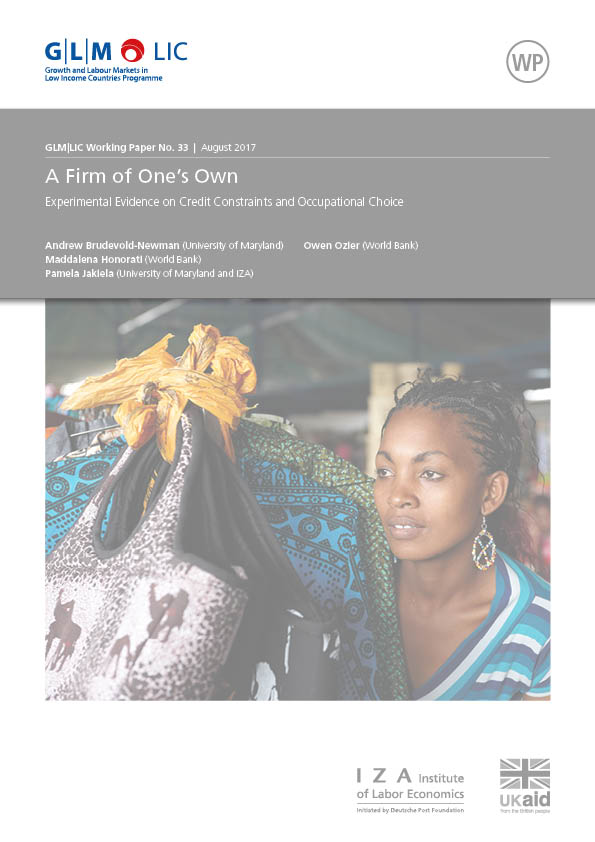We conducted a randomized evaluation of two labor market interventions targeted to young women aged 18 to 19 in three of Nairobi’s poorest neighborhoods. One treatment offered participants a bundled intervention designed to simultaneously relieve credit and human capital constraints; a second treatment provided women with an unrestricted cash grant, but no training or other support. Both interventions had economically large and statistically significant impacts on income over the medium-term (7 to 10 months after the end of the interventions), but these impacts dissipated in the second year after treatment. Our results are consistent with a model in which savings constraints prevent women from smoothing consumption after receiving large transfers — even in the absence of credit constraints, and when participants have no intention of remaining in entrepreneurship. We also show that participants hold remarkably accurate beliefs about the impacts of the treatments on occupational choice.
